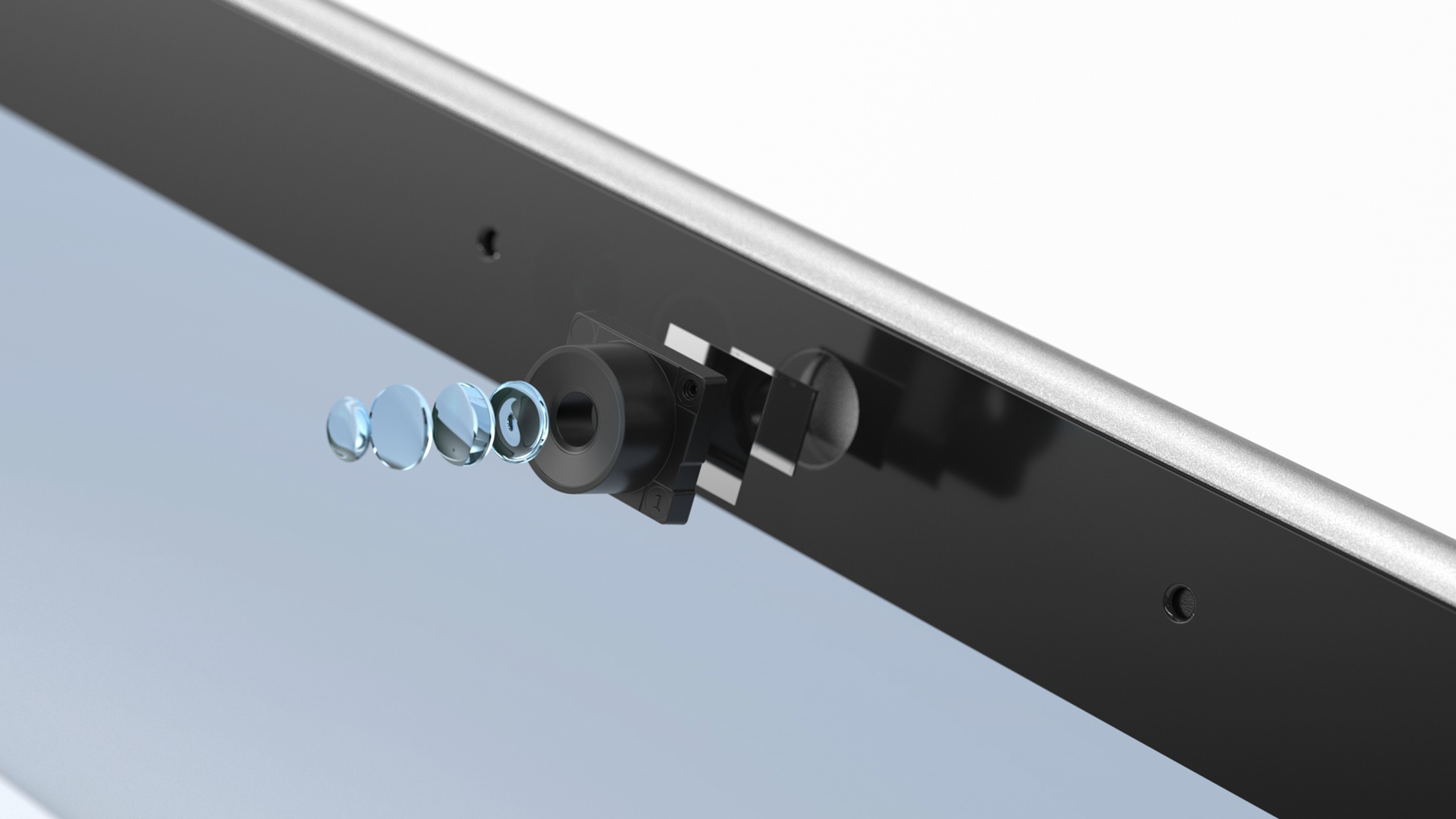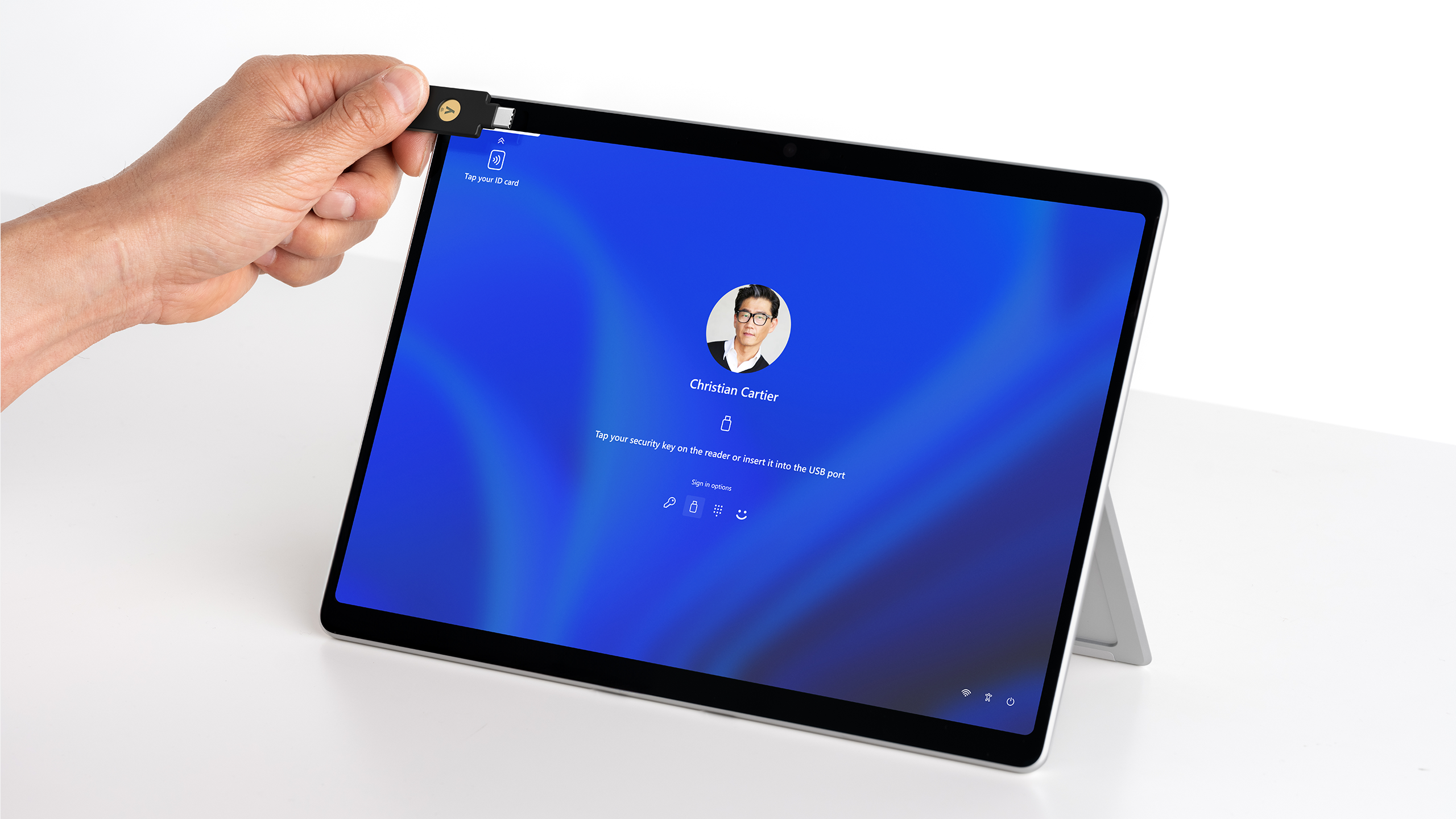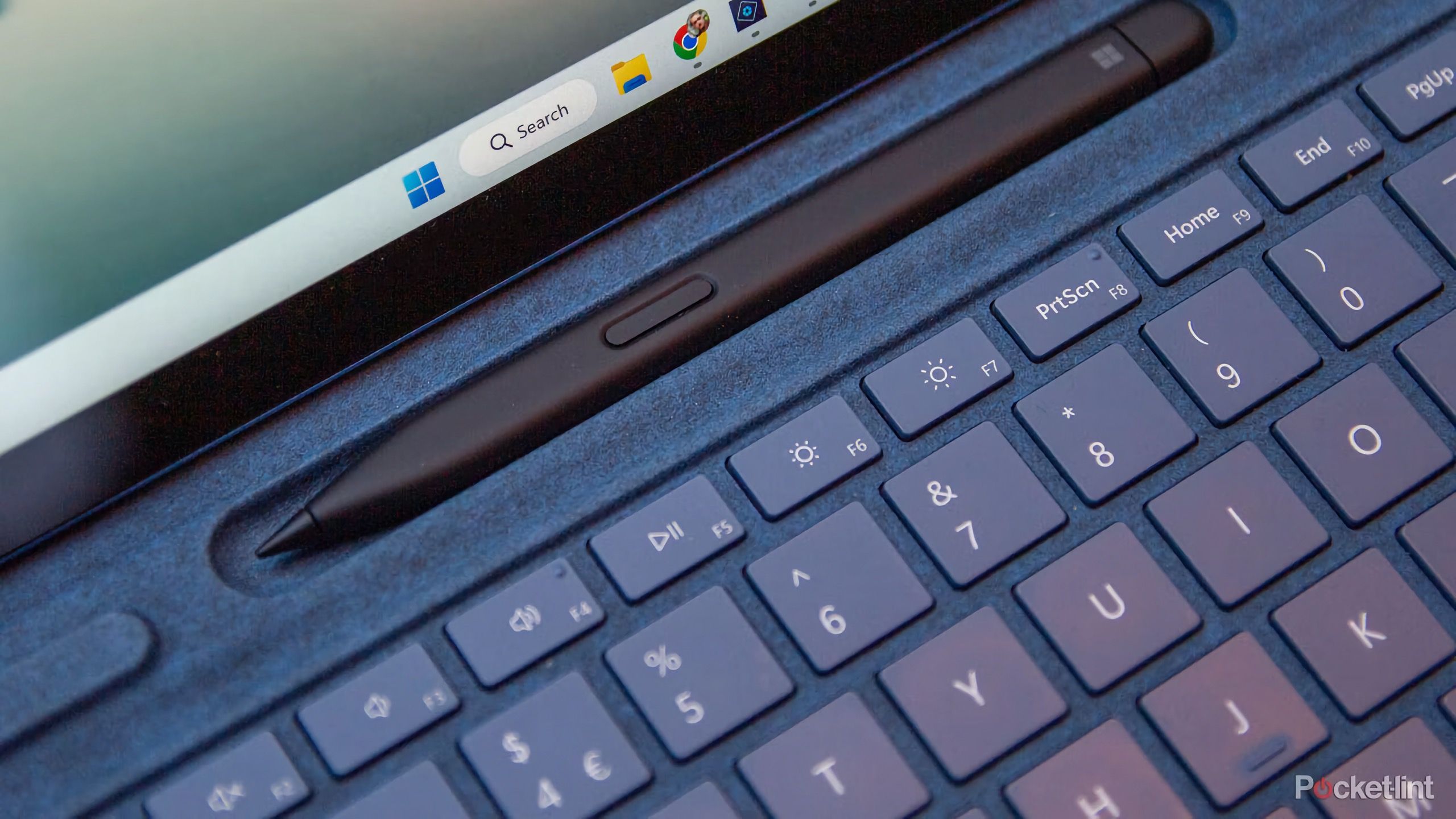-
Surface Pro 10 for Business
The new Surface Pro 10 for Business builds on its predecessor by offering a faster processer, the option to add even more RAM and a dedicated NPU. It’s the most powerful Surface Pro to date.
Pros- Significantly faster processor
- Dedicated NPU
- 64GB RAM option
Cons- No real change in design
- No 5G option currently available
-
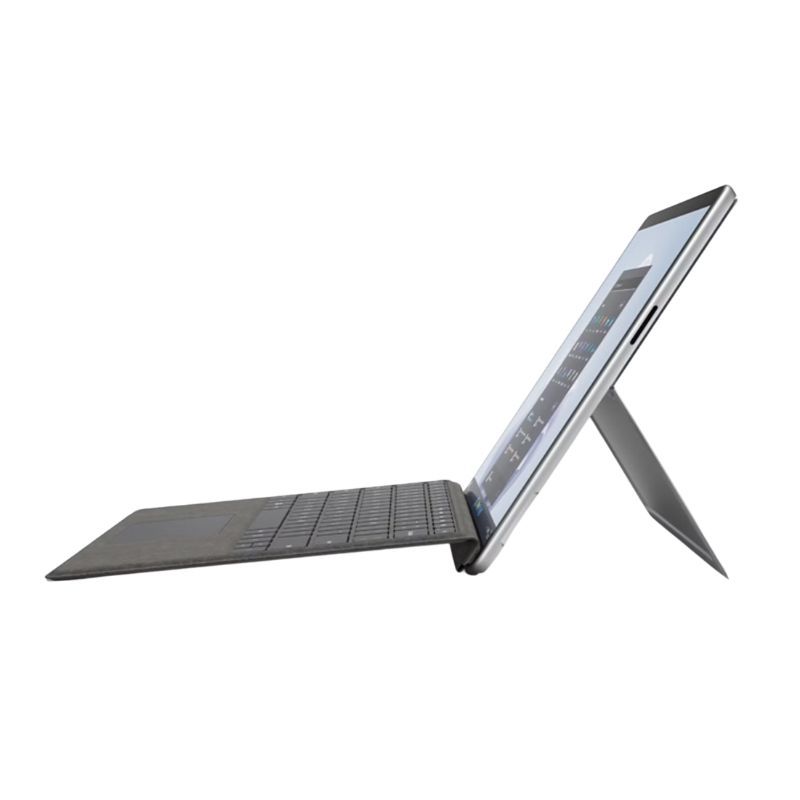
Surface Pro 9 for Business
The Surface Pro 9 for Business was the most powerful Surface Pro until the launch of the new model, and can still handle most things you can throw at it. It’s not as fast as the new version, however.
Pros- 13-inch screen
- Decent power
- Reasonable battery life
Cons- No dedicated NPU
- Slower processor
Microsoft has announced two new Surface products that are firmly aimed at the business market but will pique the interest of many recreational users, too. The Surface Laptop 6 for Business and Surface Pro 10 for Business were launched at the Surface event in March 2024, and given the times we currently live in, there is a heavy focus on AI. Indeed, both products can make use of a dedicated Copilot key to quickly access the Copilot AI features, although you’ll need to purchase a separate Surface Pro keyboard if you want to use one with the Surface Pro 10, as it’s not included in your purchase.
How does the new Surface Pro 10 for Business compare to its predecessor? Which is the better choice to purchase, and if you already own the Surface Pro 9 for Business, is it worth the upgrade?
We go head-to-head with the Surface Pro 10 vs Surface Pro 9 to see how they compare.
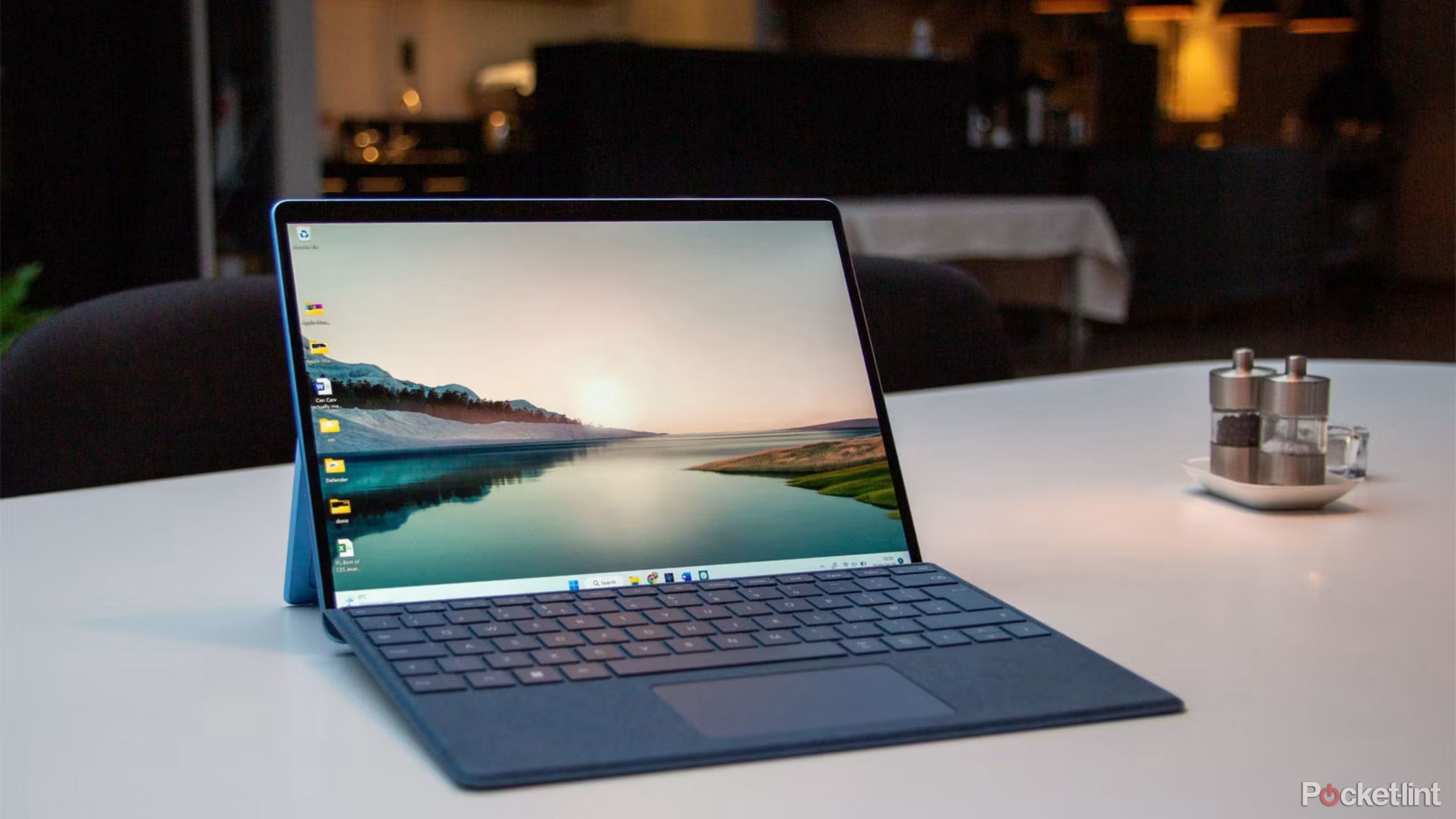
Everything Microsoft announced at its March Surface event
Microsoft’s event was devoted to business customers, but it gave us a look at what’s to come in the new consumer Surface Pro 10 and Laptop 6.
Price, specs, and availability
The consumer Surface Pro 9 was officially unveiled in October 2022. It was priced from $999.99 for the base Core i5, 8GB RAM, 128GB model, with a range of processors, RAM, and storage upgrades available up to the most expensive Core i7, 32GB RAM, 1TB model priced at $2599.99. Alongside the consumer models, Microsoft also launched the Surface Pro 9 for Business. This is a more powerful model that uses a slightly more powerful processor and starts at $1099.99 from Microsoft.
The Surface Pro 10 for Business was announced in March 2024, and will start shipping on April 9. We expect to see Microsoft announce the consumer version in May if that’s what you’re waiting for. If you want to get your hands on a 5G model, you may have to wait a little longer; the Surface 10 Pro with 5G is due to be available later in 2024.
There’s no keyboard included with either Surface Pro model; you’ll have to pay extra if you want one, with the Surface Pro keyboard available from Microsoft starting from an additional $139.99. If you’re upgrading from the Surface Pro 9 for Business, your Surface Pro keyboard will fit the Surface Pro 10 for Business, too.
Let’s take a look at some of the key specs to see how the two devices stack up.
-
Surface Pro 10 for Business Surface Pro 9 for Business Operating System Windows 11 Pro Windows 11 Pro CPU Intel Core Ultra 5 (135U) or Intel Core Ultra 7 (165U) Intel Core i5 (1245U) or Intel Core i7 (1265U) RAM 8GB / 64GB 8GB / 32GB Storage 256 / 512GB / 1TB 128 / 256 / 512GB / 1TB Battery 48W 47.7W Display (Size, Resolution) 13-inch, 2800×1920 13-inch, 2800 x 1920 Camera 1440p Quad HD front-facing, 10.5MP Ultra HD rear-facing 1080p front-facing, 10MP rear-facing Ports 2 x USB-C, Surface Connect 2 x USB-C, Surface Connect Dimensions 11.3 x 8.2 x 0.37 inch 287 x 208 x 9.3mm Weight 1.94lbs / 879g 1.94lbs / 879g Connectivity Wi-Fi 6E, Bluetooth 5.3 Wi-Fi 6E, Bluetooth 5.1
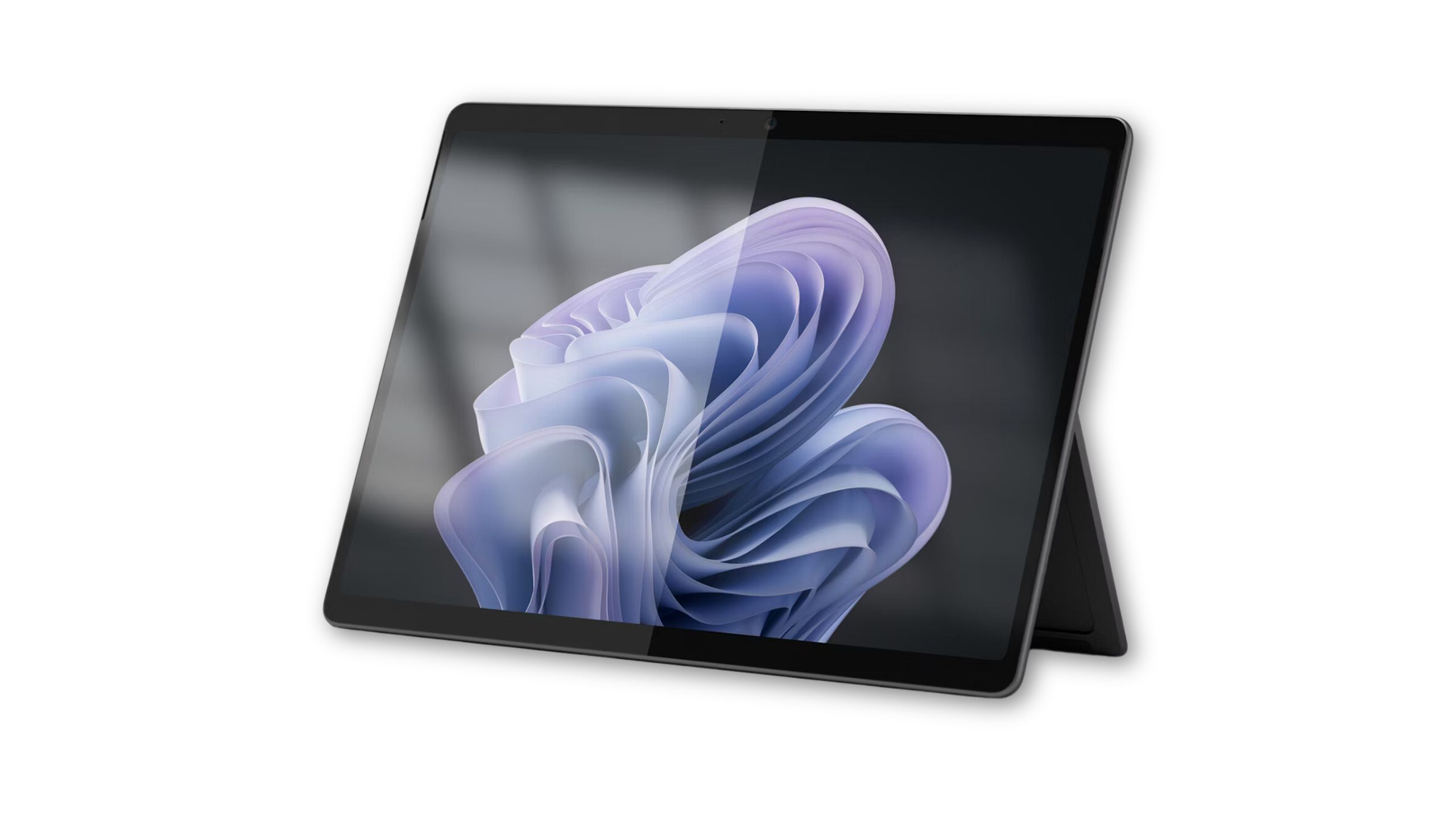 Design similarities and updates
Design similarities and updates
If it isn’t broken, they won’t fix it
The Surface Pro 9 changed very little from the previous model in terms of design. It keeps the same 2 USB-C ports which support Thunderbolt 4 and USB 4.0. There’s also the proprietary Surface Connect port. The built-in kickstand is a handy feature, allowing you to prop your Surface Pro 9 for Business upright.
The Surface Pro 9 for Business looks great too, with thin bezels around the outside of the display that are a little thicker on the longer sides than on the shorter ones. The tablet is 0.37 inches thick, which is a little thicker than some other options such as the Samsung Galaxy Tab S9. It weighs in at 879g or 1.94lbs, which is significantly heavier than many of its competitors, including the iPad Pro 12.9-inch. If you’re planning to use it exclusively as a handheld tablet, this is something to consider.
The Surface Pro 9 for Business is available in the same four colors as the consumer model: Platinum (silver), Sapphire (light blue), Forest (sage green), and Graphite (dark gray), although the 5G model is only available in Platinum.
The Surface Pro 10 for Business doesn’t make any huge design changes, either. It has the same dimensions as the Surface Pro 9, and weighs the same, too. It also has the same size display, meaning that the bezels are identical in size to the Surface Pro 9 for Business. Overall, you’d be hard-pushed to tell the devices apart just by looking at them. The Surface Pro 10 for Business comes in Platinum or Black.
Display upgrades and similarities
Brightness and anti-reflective updates
The Surface Pro 9 for Business has a 13-inch PixelSense Flow display with a 2880 x 1920 resolution with a refresh rate of up to 120Hz. The Surface Pro 10 for Business has the same 13-inch PixelSense Flow display with the same 2880 x 1920 resolution, up to 120Hz dynamic refresh rate. It is a little brighter, however, with a typical maximum brightness of 600 nits compared to 450 nits on the Surface Pro 9. There’s also new anti-reflective tech on the Surface Pro 10 display which should make it easier to use in challenging lighting conditions.
Both models include support for Dolby Vision IQ which uses a sensor to dynamically adjust the display settings to the ambient lighting.
Microsoft
Camera specifications and locations
Field of view and image quality
The Surface Pro 9 has a 1080p front camera, with a 10MP rear-facing camera, both of which are adequate for their purpose. The Surface Pro 10 improves on these cameras, however. On the front, there’s a 1440 Quad HD camera with a 114-degree field of view, and on the rear, there’s the slightly superior 10.5MP Ultra HD camera. It’s not a huge difference, and tablets aren’t often your camera of choice, but you may find the bump in the front camera useful if you’re making video calls.
Microsoft
Hardware performance and configurations
Ram, Intel Core processors, and AI
The base model of Surface Pro 9 for Business comes with 8GB of RAM and an Intel Core i5 (1245U) processor. The Intel Core i5 has two performance cores that can run at up to 4.4GHZ, and eight efficiency cores that can run at up to 3.3GHz. If you want superior performance, you can bump this up to 32GB of RAM with an Intel Core i7 (1265U) processor. The Intel Core i7 has two performance cores that can run at up to 4.8GHz, with eight efficiency cores that run at up to 3.6GHz. There’s also the option to upgrade up to 1TB of storage, too.
The Surface Pro 9 for Business with 5G runs on a Microsoft SQ3 processor and the big difference here is that it includes a Neural Processing Unit (NPU) that handles some of the AI processing, reducing the load on the CPU. This isn’t included in the Wi-Fi Surface Pro 9 models.
The base model of Surface Pro 10 for Business also comes with 8GB of RAM, running on an Intel Core Ultra 5 (135U) processor. This processor has 12 cores, with two performance cores that can run at up to 4.4GHZ, and 10 efficiency cores that can run at up to 3.6GHz. You can upgrade this to 64GB RAM running on an Intel Core Ultra 7 (165U) processor, with up to 1TB of storage. The Intel Core Ultra 7 has 2 performance cores that can run up to 4.9GHz, and 10 efficiency cores that can run at up to 3.8GHz.
The superior processors in the Surface Pro 10 make it the more capable device, with Microsoft claiming that the Surface Pro 10 can run up to 53% faster than the Surface Pro 9.
The Surface Pro 10 for Business features an NPU in all its models to handle some of the AI computation. The superior processors in the Surface Pro 10 make it the more capable device, with Microsoft claiming that the Surface Pro 10 can run up to 53% faster than the Surface Pro 9. We look forward to putting the Surface Pro 10 through its paces.
Although the Surface Pro 10 with 5G isn’t due until later in the year, there is a key piece of information that we know about it; unlike the Surface Pro 9 with 5G which uses a rebranded Qualcomm chip, the Surface Pro 10 with 5G will be the first Surface 5G product that runs on an Intel chip.
The Surface Pro 10 for Business has one other key hardware difference, too. There’s a built-in NFC in the corner of the device which can help with authentication for secure sign-in.
Performance capability
Processors make all the difference
We found the consumer i7 Surface Pro 9 with 16GB offered excellent performance for everything from browsing to photo editing. In terms of RAM, the optional 64GB RAM available in the Surface Pro 10 for Business is significantly more than the maximum of 32GB in the Surface Pro 9 and could come in useful if you use your Surface Pro for intensive tasks, although it’s probably overkill for the average consumer.
In addition, as the Surface Pro 10 for Business features an NPU in all its models to handle some of the AI computation, it should run more smoothly when using AI features. We look forward to testing out the newest Copilot integrations to see how the inclusion of an NPU alongside the improved processor actually performs once we get our hands on the Surface Pro 10.
Battery life and charging
Microsoft claims three hours improvement
The Surface Pro 9 for Business is rated for up to 16 hours between charges, but this will drop if you’re using the device intensively. Indeed, we found the battery life on the Surface Pro 9 to be about half the rated 16 hours when using it extensively, like we would a laptop. However, that’s still enough for most people’s needs. The Surface Pro 9 recharged to full in about 90 minutes.
The Surface Pro 10 is rated for 19 hours of typical usage, which is significantly higher than the Surface Pro 9. We’ve yet to get our hands on the device but look out for our full hands-on review where we’ll know more about just how long the battery holds up under use.
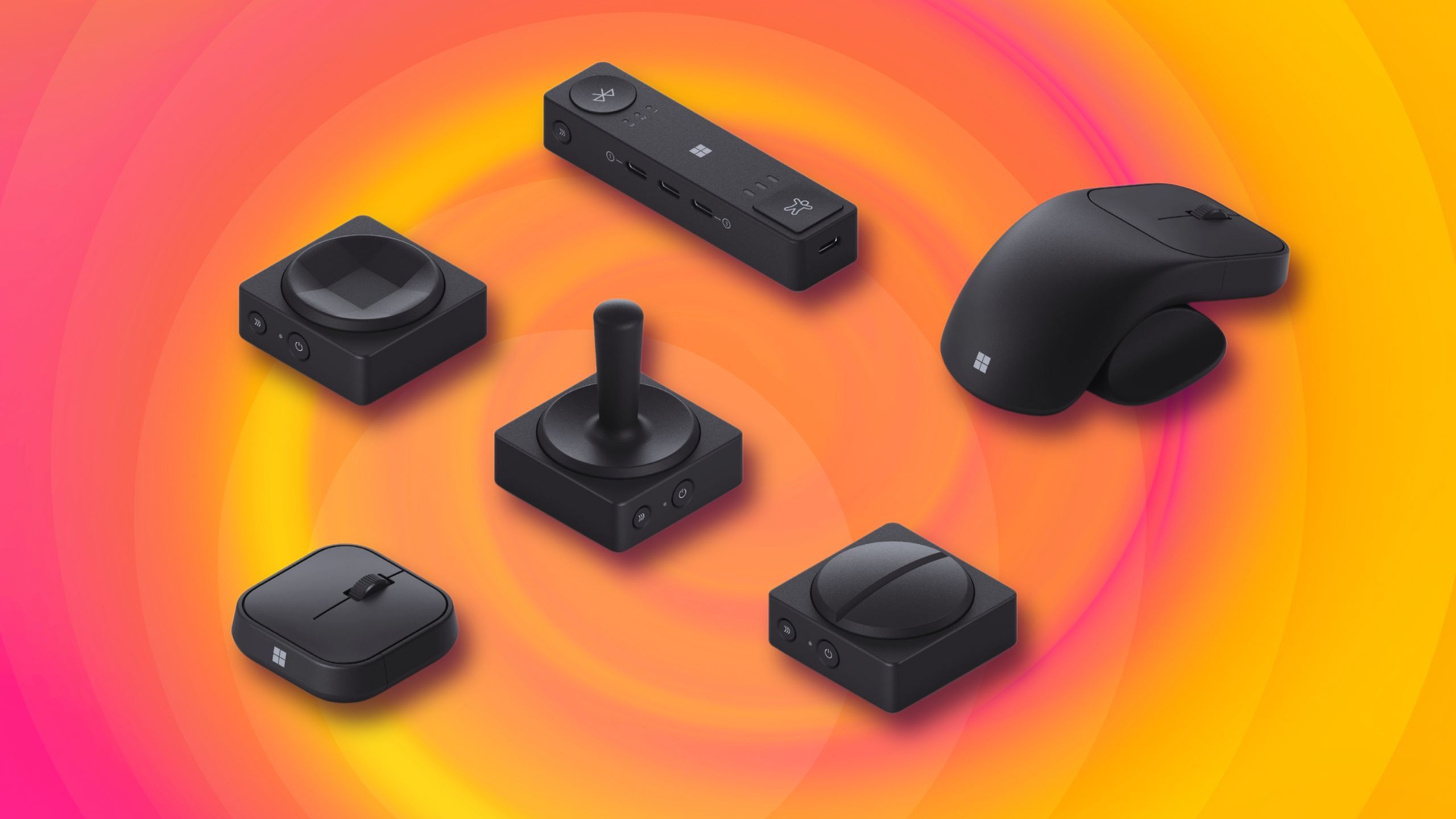
5 interesting Microsoft accessories to use with your Surface
Microsoft has updated its Surface accessories to make work and play more comfortable for everyone. Here’s what each of them can do.
Surface Pro 10 vs Surface Pro 9: Worth the upgrade?
The Surface Pro 10 for Business may not be a huge upgrade to the Surface Pro 9 for Business, but the superior processor, improved cameras, and longer battery life mean that it’s a more capable device, especially if you’re using it for business. The Surface Pro 10 is more capable of handling intensive use if you’re planning to use your Surface Pro as your main machine and the dedicated NPU chip should also improve performance when using AI.
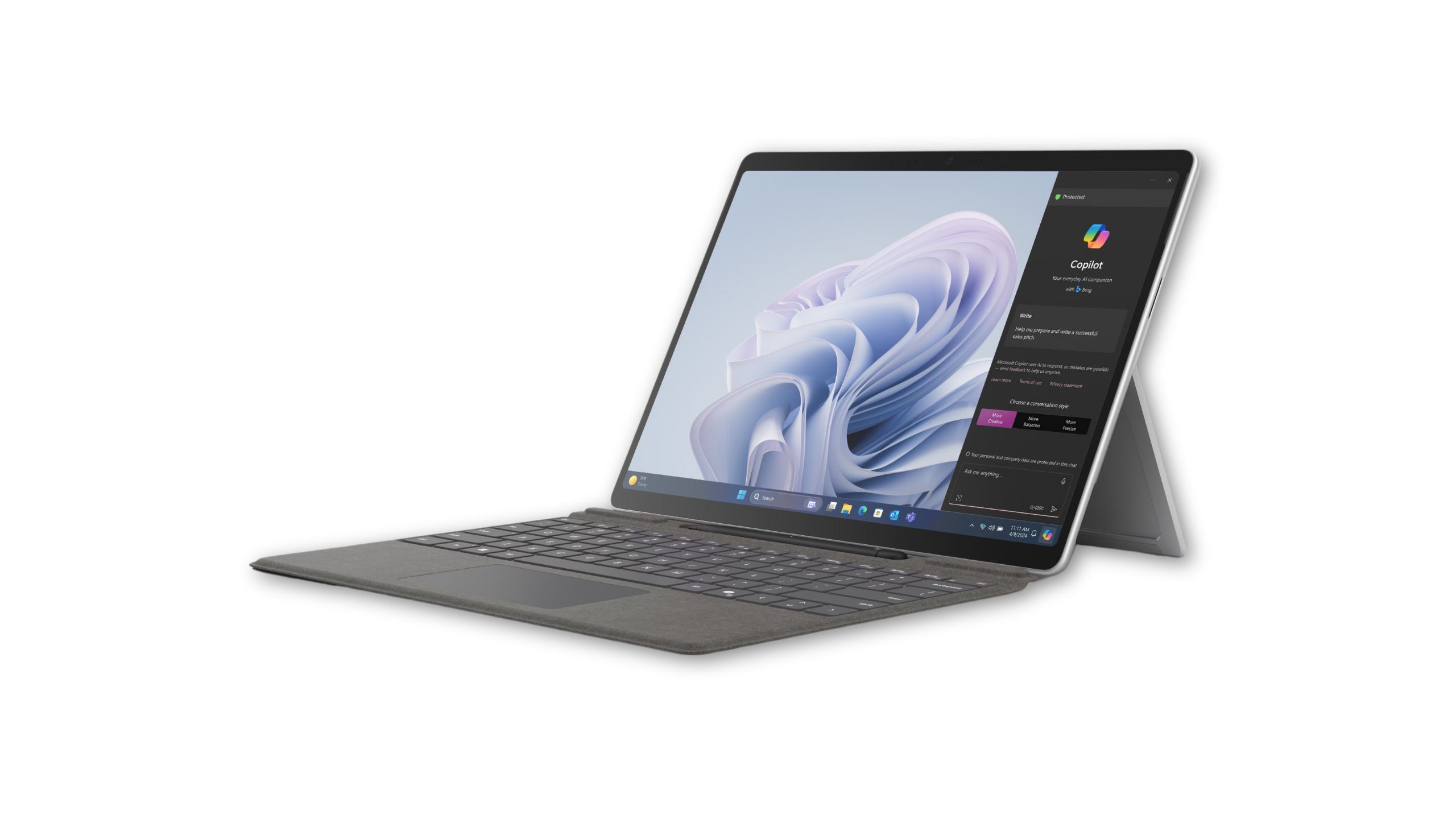
Surface Pro 10 for Business
Editor’s Choice
If you already own a Surface Pro 9 for Business, then there’s not enough in the Surface Pro 10 for Business to warrant an upgrade. It’s the same display, same design, and the improvement in performance and cameras probably isn’t enough to make replacing your Surface Pro 9 worthwhile, especially for general use. If your Surface Pro 9 is going strong, you may be better seeing what the consumer version of the Surface Pro 10 has to offer when it eventually arrives or skipping a generation entirely and waiting for the Surface Pro 11.
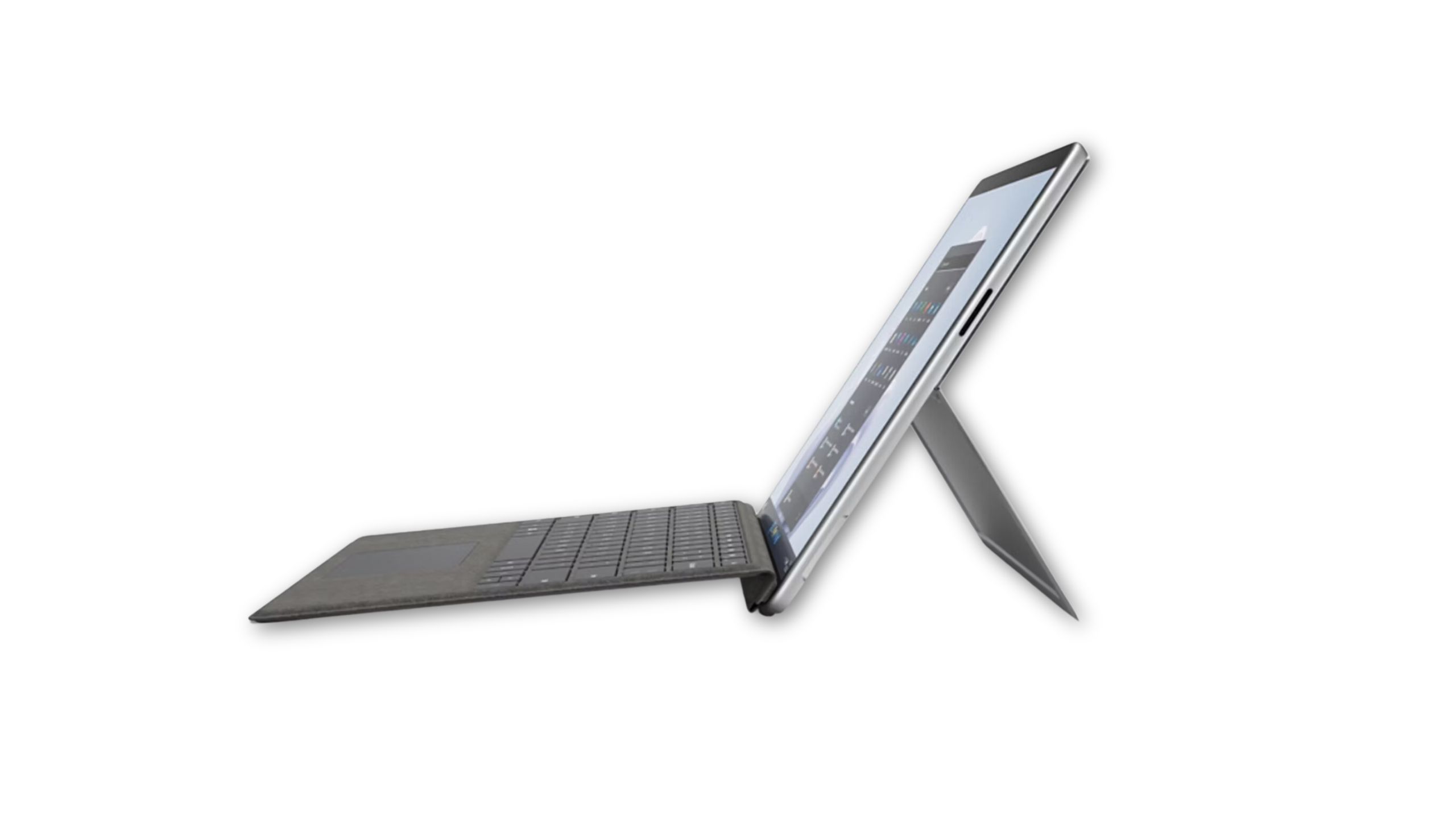
Surface Pro 9 for Business
Good alternative
Trending Products

Cooler Master MasterBox Q300L Micro-ATX Tower with Magnetic Design Dust Filter, Transparent Acrylic Side Panel, Adjustable I/O & Fully Ventilated Airflow, Black (MCB-Q300L-KANN-S00)

ASUS TUF Gaming GT301 ZAKU II Edition ATX mid-Tower Compact case with Tempered Glass Side Panel, Honeycomb Front Panel, 120mm Aura Addressable RGB Fan, Headphone Hanger,360mm Radiator, Gundam Edition

ASUS TUF Gaming GT501 Mid-Tower Computer Case for up to EATX Motherboards with USB 3.0 Front Panel Cases GT501/GRY/WITH Handle

be quiet! Pure Base 500DX ATX Mid Tower PC case | ARGB | 3 Pre-Installed Pure Wings 2 Fans | Tempered Glass Window | Black | BGW37

ASUS ROG Strix Helios GX601 White Edition RGB Mid-Tower Computer Case for ATX/EATX Motherboards with tempered glass, aluminum frame, GPU braces, 420mm radiator support and Aura Sync


